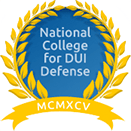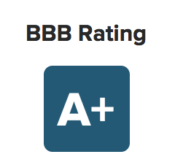How To Navigate New Jersey’s DWI Laws
What sets New Jersey’s DWI laws apart compared to other states? New Jersey’s approach to Driving While Intoxicated (DWI) cases stands out from most states. Unlike other jurisdictions, a DWI in New Jersey isn’t treated as a criminal offense, it’s categorized as a traffic violation. While this distinction might seem like a relief for defendants, it introduces unique challenges. Let’s break down what makes New Jersey’s system so different and how understanding these nuances can shape your defense.
DWI in New Jersey: A Traffic Offense, Not a Criminal Act
In New Jersey, a DWI conviction won’t leave you with a criminal record. It also means no felony charges, even for repeat offenses. However, this classification comes with a significant drawback: there’s no right to a jury trial. Instead, DWI cases are heard by municipal judges, many of whom are appointed by local governments. This creates a courtroom dynamic where the judge may have close ties to local law enforcement and prosecutors, which can be a challenging environment for defendants.
How Jury Trials vs. Bench Trials Can Impact Your DWI Defense
The absence of a jury trial in New Jersey means your fate lies in the hands of a single judge. While juries might be more sympathetic to nuanced arguments, municipal judges are often less forgiving. These judges handle large caseloads and may feel pressure to process cases quickly, which can make it harder to get a fair trial. It’s important to have a skilled DWI attorney on your side who knows how to navigate these dynamics, presenting arguments tailored to the unique setup of New Jersey’s court system.
Understanding Penalties for First, Second, and Third Offenses
The penalties for DWI in New Jersey escalate quickly with each offense:
- First Offense: A conviction with a blood alcohol content (BAC) between 0.08% and 0.15% generally doesn’t result in a license suspension. However, you’ll face an ignition interlock device requirement and significant fines. For a BAC above 0.15%, license suspension becomes mandatory.
- Second Offense: The penalties include a license suspension of one to two years, increased fines, and mandatory jail time of up to 90 days.
- Third Offense and Beyond: A third offense carries a mandatory six-month jail sentence, significant fines, and a long license suspension.
For repeat offenses, it’s not just about the penalties—the long-term impact on your personal and professional life can be severe.
How the 10-Year Stepdown Rule Can Affect Your Record
One of New Jersey’s more misunderstood provisions is the step-down rule. If ten years have passed since your last DWI conviction, the court may treat a new offense as a first offense for sentencing purposes.
However, this isn’t as straightforward as it seems. The clock resets with each conviction, and only one step-down is typically allowed in a defendant’s lifetime. Understanding how to leverage this rule can significantly affect your case, and it requires an experienced DWI lawyer near you with deep knowledge of DWI law.
Immigration Consequences of Multiple DWI Convictions
While a DWI in New Jersey is a traffic offense, it can still have serious immigration consequences. Under federal law, multiple DWI convictions may be considered a crime of moral turpitude, potentially leading to deportation. This gray area highlights why it’s critical to consult with a New Jersey DWI attorney who understands both state and federal implications of your case.
The Importance of An Experienced DWI Lawyer Near You
New Jersey’s DWI laws are distinct, and navigating them requires a DWI lawyer who not only understands the law but knows how to work within the state’s unique legal system. At The Law Offices of Jonathan F. Marshall, we’ve dedicated ourselves to mastering these complexities, ensuring our clients receive the best defense possible. If you have been charged with a DWI, reach out to our NJ law firm today for a free case evaluation.











